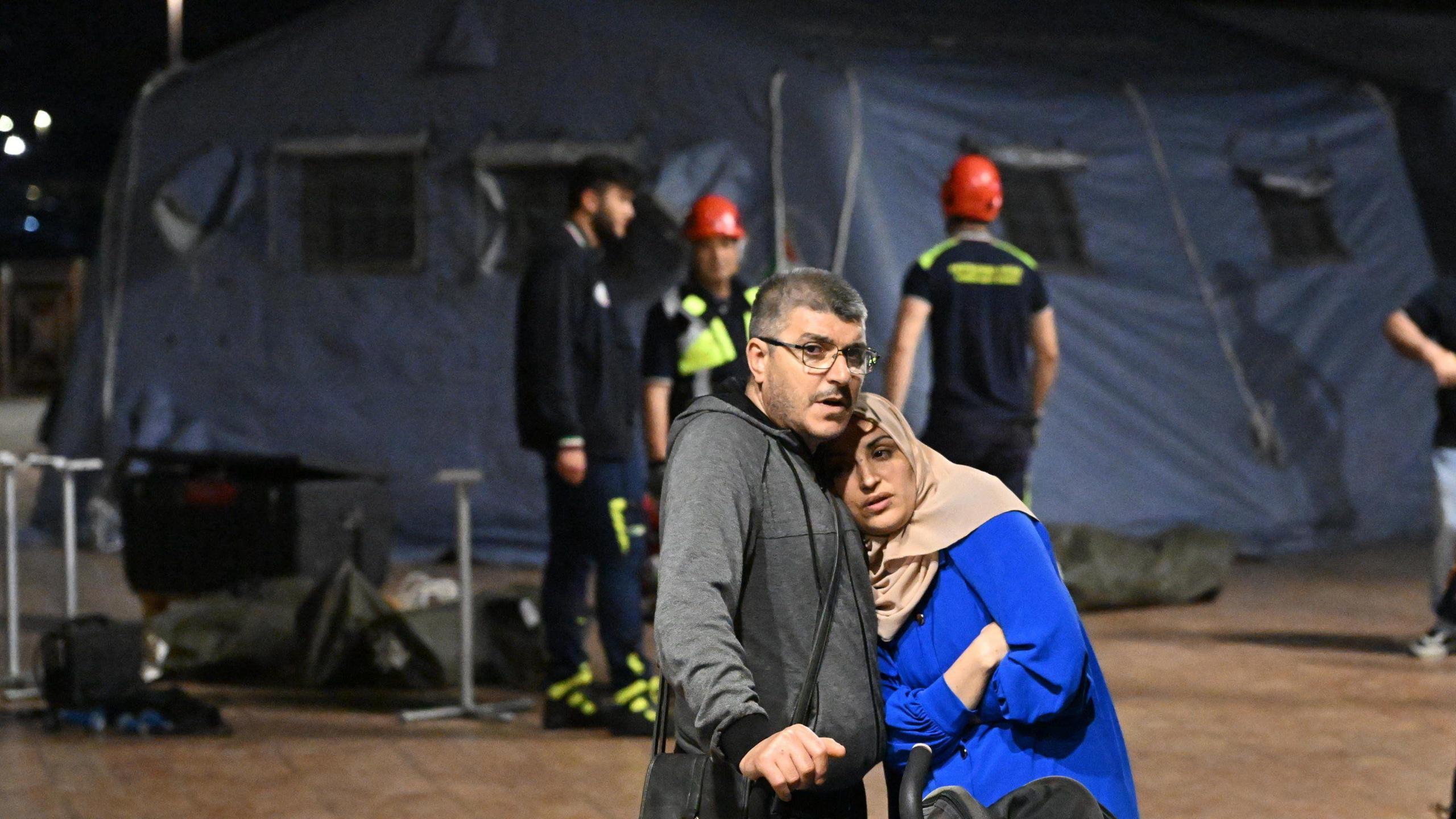Naples region rocked by more than 150 quakes

Makeshift camps were set up late on Monday for residents made to leave their homes
- Published
Homes were evacuated and many schools closed after a flurry of earthquakes hit the area around Naples in southern Italy.
More than 160 earthquakes were recorded on Monday evening and overnight.
The strongest, of magnitude 4.4, happened around 20:00 local time (18:00 GMT) near the town of Pozzuoli. Italy’s National Institute of Geophysics and Volcanology (INGV) said it was the strongest quake in the region for 40 years.
Gaetano Manfredi, the mayor of Naples, acknowledged that residents may be scared - but said officials were "paying attention".
Hundreds of tents were erected in Pozzuoli and some residents stayed on the streets for much of the night, though others opted to stay elsewhere with relatives.
Local media reported that several families were considering leaving the area altogether due to the number of low-level quakes that have occurred in the last few months.
One outlet quoted a Naples resident as saying they had never felt such a strong quake.
"This time it was rough, it felt like it would never end," a man told Il Mattino newspaper.
While no significant damage to structures has been reported, some schools in Naples remained shut on Tuesday for inspections - and a women’s prison in Pozzuoli was evacuated as a precaution.
Mr Manfredi warned "there could be more serious quakes" in the future and said officials needed to "manage this emergency situation with which we might have to live for months".
"I can't tell people not to be scared, because that's normal, but I can tell Neapolitans that we are paying attention and monitoring [the situation]," he continued in a statement.
"Never before has this territory been more closely watched, so let's try and live as normally as we can."

Pozzuoli residents, some with pets, waited out the tremors at camps set up by the Italian government's Civil Protection department
Pozzuoli sits near the Campi Flegrei (Phlegraean Fields), a large volcanic caldera - a sort-of sinkhole - left after an eruption that is thought to have occurred tens of thousands of years ago.
The plain, which is home to more than 800,000 people, has in the last year seen an increase in seismic activity and bradyseism - a process that leads to a change in the height of the surface of the land, causing said quakes that Campi Flegrei residents have experienced.
The INGV has previously said that an eruption of the Campi Flegrei would require a large accumulation of magma below the land surface and, as a result, volcanologists would be able to spot the signs well in advance.
The Italian government recently updated its mass evacuation plan for the so-called "red area", which would be most exposed to the consequences of an eruption there.
Under the plan, 500,000 residents would be evacuated inland with buses, boats and trains in the space of 72 hours.
However, one Pozzuoli resident told Italian media that people were uninformed about the evacuation plan, leading to some “panicked reactions” during Monday's quake.
“People lost their minds. They started running out into the street and - most dangerous of all - they got into their cars, trying to escape," a man called Giovanni told Il Messaggero. "Chaos ensued."